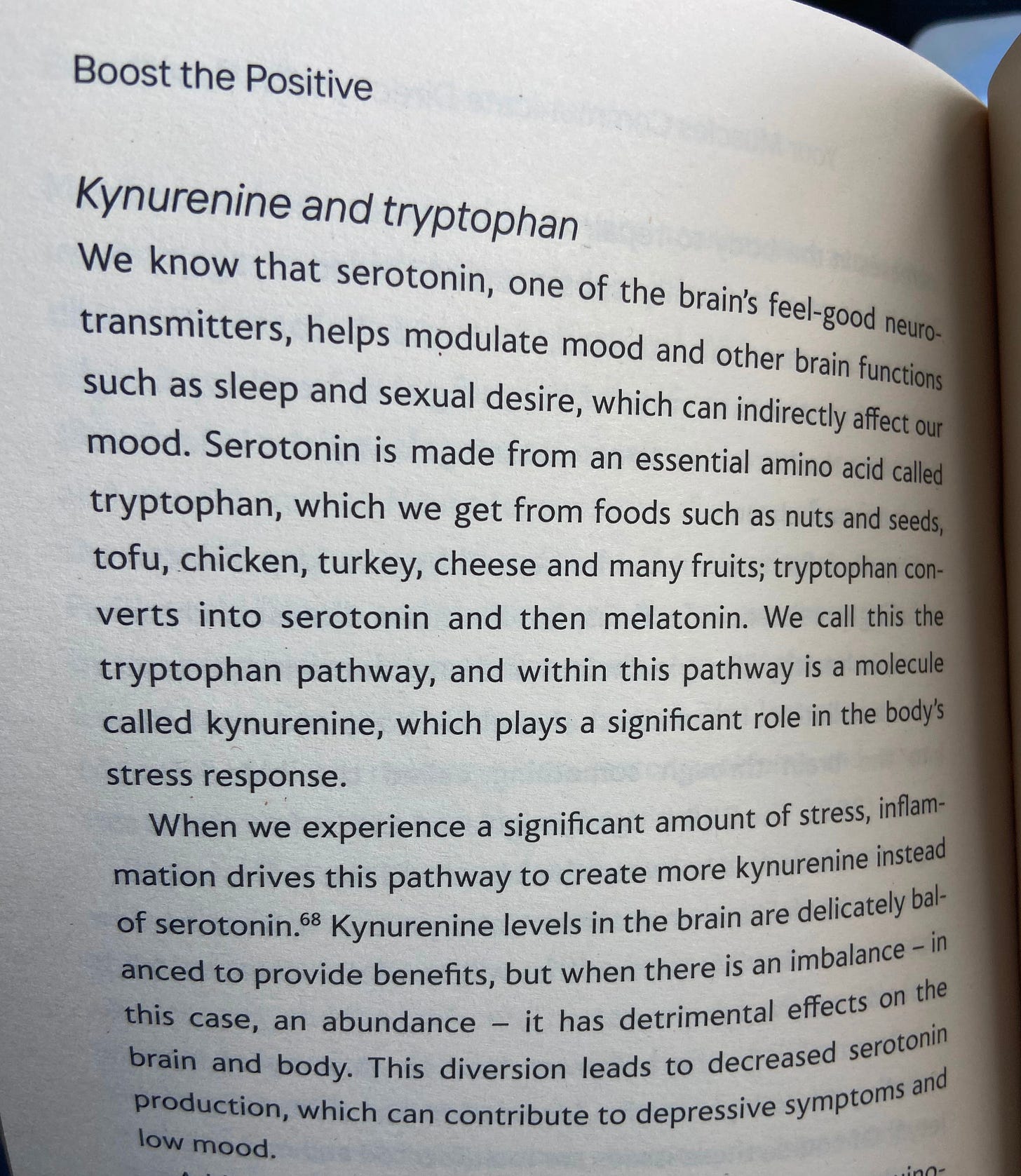Hey Rewire Collective!
Welcome to this week's newsletter! Let’s chat about why we become SO obsessive when we start dating someone.
What is serotonin?
Good question. Serotonin is a neurotransmitter, meaning it sends messages in the brain, and a hormone, meaning it communicates with the body. The majority of our serotonin is actually in our guts (hence why eating healthy is so crucial!), with only 10% being produced in our brains (1). But, serotonin has a massive impact on our brain function.
Serotonin plays a role in our moods, our digestion, our sleep length and quality, our sexual health, and even our bone health (1)! You’ve probably heard of serotonin before because of its role in our mood, and specifically it’s role in depression and anxiety (2). Those SSRI’s, yeah, that’s serotonin selective reuptake inhibitor. Essentially, they stop serotonin from being removed from the brain, making more of it available for use. Too little serotonin is a problem.
Side Note: Difference between Serotonin and Dopamine
Dopamine and serotonin are both neurotransmitters, and they’re both considered ‘happy hormones’. They are both involved in making us feel happy. However, dopamine motivates us with rewards, while serotonin makes us feel calm and happy.
But while serotonin is mainly found in the gut, and therefore, affects digestion, dopamine is mainly found in the brain. Dopamine's other role, aside from reward and motivation, is movement. And while dopamine makes us feel hungry, serotonin makes us feel satiated.
Serotonin and Obsessive Compulsive Disorder
Low serotonin is an issue in depression and anxiety, but also in obsessive-compulsive disorder (OCD). Low serotonin is associated with obsessive thinking, and many symptoms of OCD can be alleviated by increasing serotonin with SSRI’s (3). However, it is not clear how serotonin is involved in OCD and obsessive thoughts. Studies looking at the serotonin transporter, responsible for clearing serotonin, show that there is less binding of the transporter in the thalamus and hypothalamus of people with OCD (3). Less binding would suggest more serotonin available, but contrastingly, when SSRI’s are given, the transporters become less available (also suggesting more serotonin), and symptoms become better (4, 5).
In animal studies, we see that serotonin receptors are less available in the frontal and temporal cortices of compulsive animals, which means serotonin cannot exert as much of an effect (3). We also see that these animals have fewer serotonin transporters in the hypothalamus (3). Ultimately, it is likely that a combination of disruptions in the serotonin system AND other neurotransmitter systems interact to produce the wide range of compulsive thoughts and behaviours seen in OCD (6)

But what about obsessive thoughts and behaviours in people without OCD? Specifically, in people in love…
Serotonin in Love
Well, a study in 1990 showed that people who recently fell in love had lower levels of serotonin (7). Recent research supports this finding and suggests that this early reduction in serotonin leads to us becoming obsessed with the person (8).
If you think about serotonin as producing a sense of calm, contentedness, peacefulness, and security, this makes sense. Less serotonin means we start feeling anxious, less calm, searching for answers and maybe needing more reassurance from a partner (8, 9).
💔IF YOU FIND YOURSELF….
✔Constantly seeing reassurance
✔Trapped in a cycle of overthinking
✔Obsessively checking their social media
💔Then join me as I guide you through the neuroscience of relationships and breakups!
P.S. THE COURSE STARTS TOMORROW, SO SIGN UP NOW TO MAKE SURE YOU DON’T MISS OUT!!!
Thankfully, serotonin goes on to balance out after some time in a relationship, but what can we do in that initial period to boost our serotonin naturally?
Natural ways to boost serotonin (1,2):
Exercise – when you run or lift weights, your body releases tryptophan, which is what the body then uses to make serotonin. This boost in serotonin after a workout is what causes the euphoria known as a ‘runner’s high’.
Eat Healthy Foods – when we eat carbs such as vegetables, fruits, legumes, and whole grains, our body produces insulin, which helps muscles take in more amino acids, giving tryptophan a better chance of getting into the brain to make serotonin!
Sun Bathing – exposure to the sun increases serotonin production!
I break these down even further in my book Rewire, and give even more tips on how to boost the positive, so if this is interesting to you, go check it out!
Until Next Week,
Nicole x
P.S. Let me know in the comments what else you’d like me to talk about!
References




